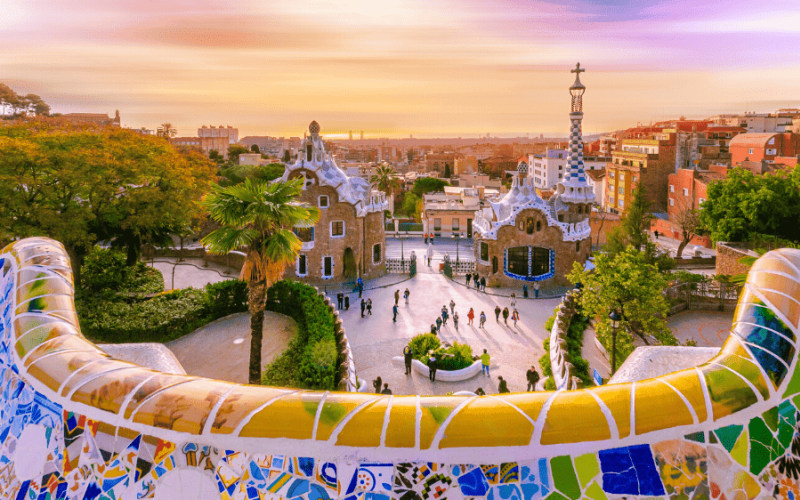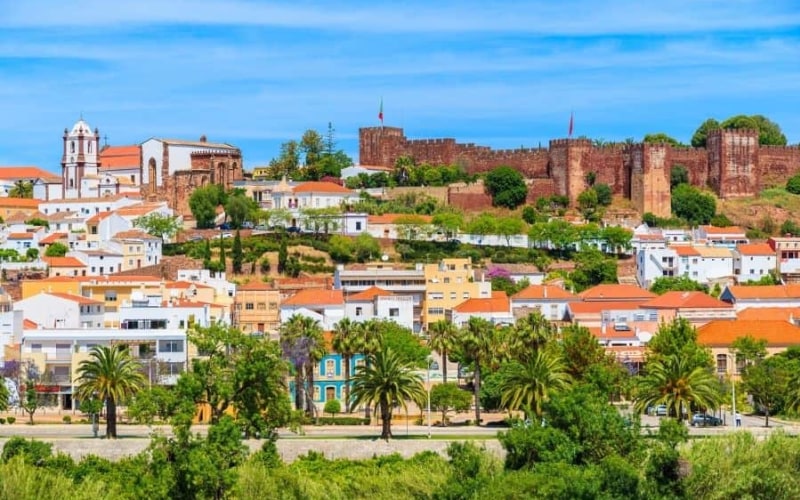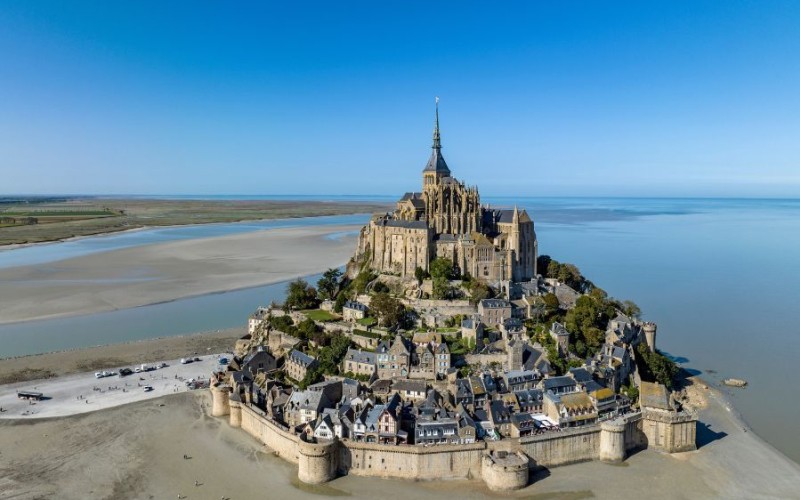The biggest city in Spain and the third largest in Europe, Madrid is a city brimming with character and culture. A Madrid city break offers the chance to explore a capital founded in the 9th century, with a fascinating history, a vibrant arts scene, world-class cuisine, and an array of attractions to discover. Whether it’s your first visit or a return trip, these fascinating facts about Madrid are sure to inspire your next holiday to Spain.
1. The Spanish Royal Family doesn’t live in the Royal Palace
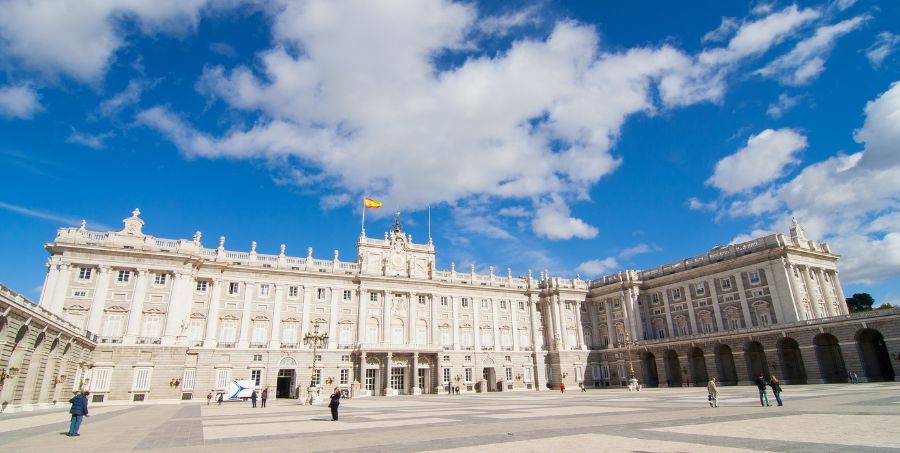
Despite being one of the largest royal palaces in Europe, the Palacio Real is not a royal residence. The Spanish Royal Family lives at the Palace of Zarzuela, located on the outskirts of Madrid. The grand Palacio Real is reserved solely for state occasions. It was built on the site of the former Alcázar, a Moorish fortress destroyed by fire in 1734, and fragments of Madrid’s original city wall can still be found in the area, a quiet trace of the city’s Islamic heritage.
2. Puerta del Sol hosts a unique new year’s eve tradition
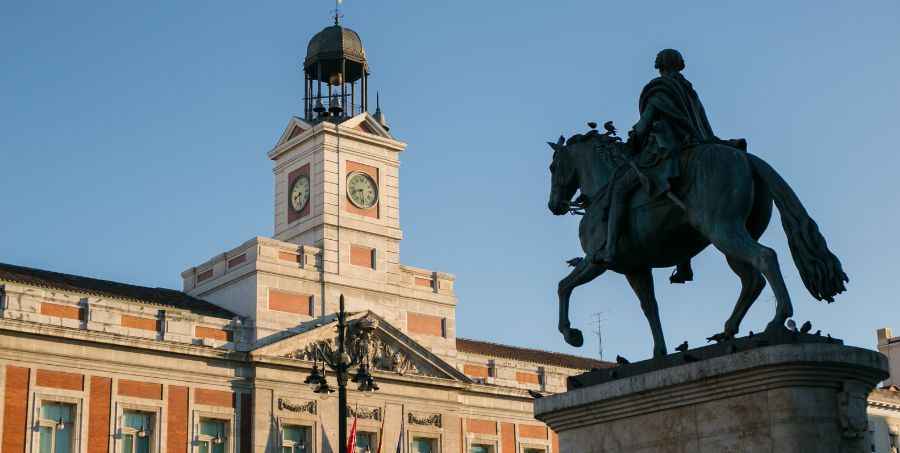
Every New Year’s Eve, Spaniards gather in Puerta del Sol to eat 12 grapes - one at each midnight chime of the Real Casa de Correos clock. Many believe the tradition dates back to 1909 where wine producers from Levante gave away surplus grapes and claimed eating grapes on New Year’s eve was very good luck.
3. Plaza Mayor has had many names
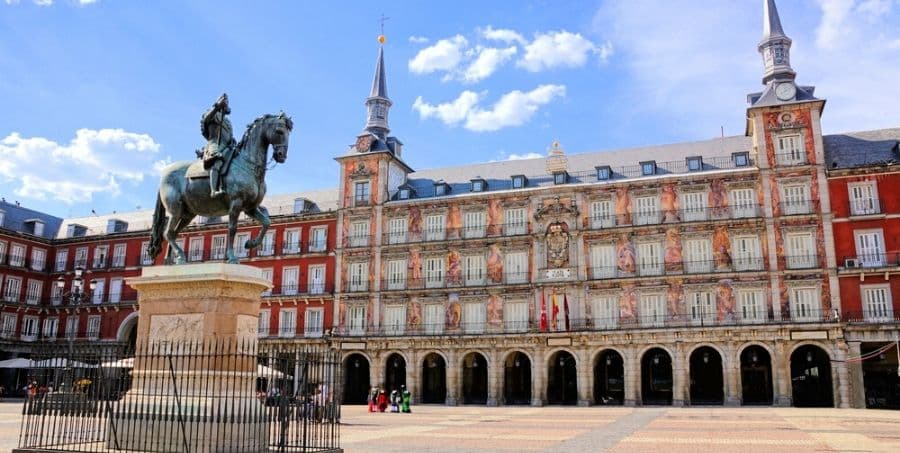
Madrid’s majestic central square, Plaza Mayor, has had a front-row seat to centuries of Spanish history. It has served as a market, theatre space, bullfighting arena, and even a venue for public executions during the Inquisition. Over the years, it has been known as Plaza del Arrabal, Plaza Real, Plaza de la Constitución, and Plaza de la República, each name reflecting Spain’s evolving political climate.
4. Madrid's Golden Triangle is a world-class art hub
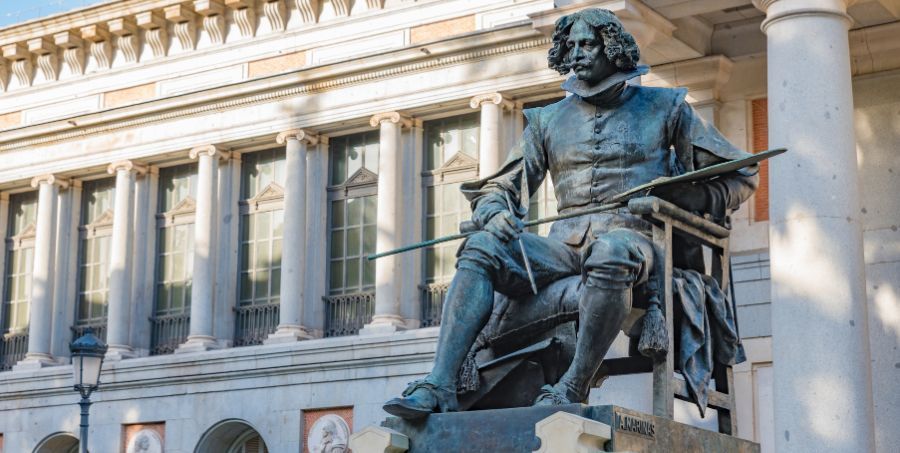
Madrid’s Golden Triangle of Art, comprising the Prado, Thyssen-Bornemisza, and Reina Sofía museums, offers one of the richest concentrations of art in the world. From Velázquez’s Las Meninas to Picasso’s Guernica, this trio showcases masterpieces spanning the Renaissance, Baroque, Impressionist and contemporary periods. The area also features outdoor sculptures and beautifully landscaped boulevards, creating a true cultural haven.
5. The symbol of Madrid is a bear and strawberry tree
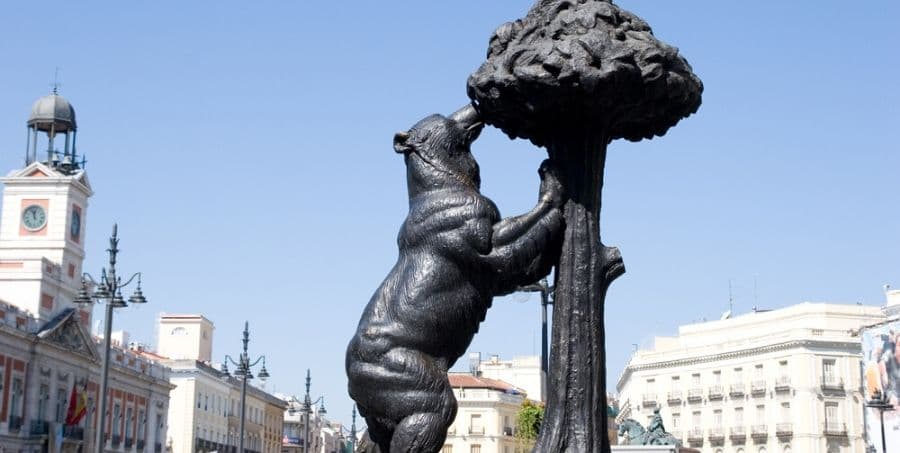
The statue of El Oso y El Madroño, located in Puerta del Sol, features a bear reaching up to a madroño (strawberry tree). This emblem dates back to the Middle Ages, when bears roamed Madrid's forests. It also symbolises harmony between humans and nature, as well as historic land rights agreements between the church and the city. The motif can be seen throughout Madrid, it even appears on the crest of Atlético de Madrid football club.
6. It has a statue of the Devil
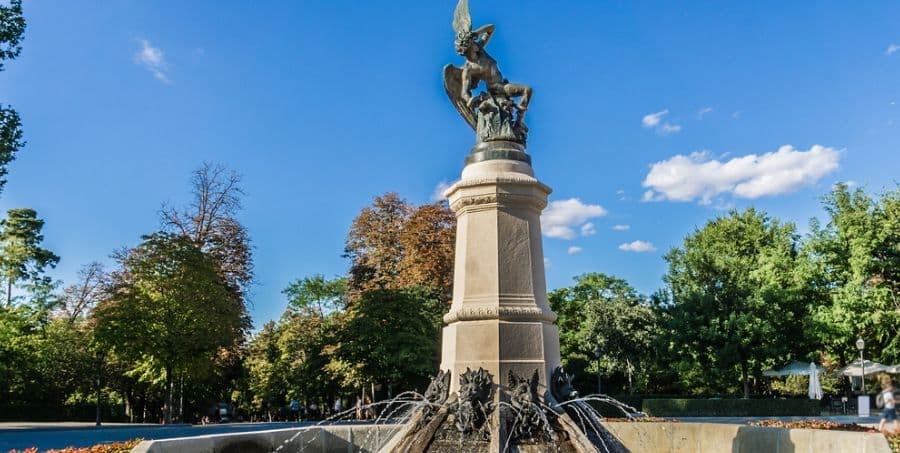
One of Madrid’s quirkiest landmarks, the Fuente del Ángel Caído in Retiro Park, depicts Lucifer’s dramatic fall from heaven. It is a rare example of a public monument dedicated to the devil and, even more curiously, it stands at approximately 666 metres above sea level. Despite its sinister subject, it is a beautiful sculpture and a favourite among photographers and curious visitors.
7. The oldest restaurant in world is in Madrid
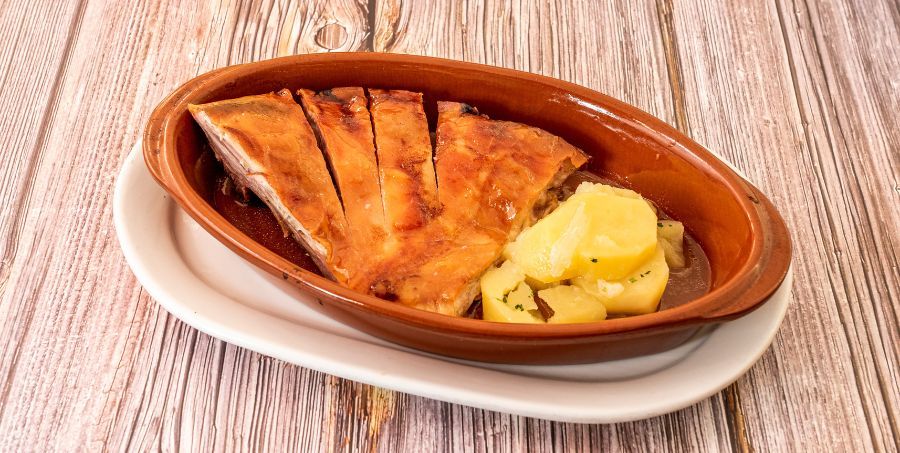
Madrid is home to the world’s oldest restaurant, according to Guinness World Records. Botín, founded in 1725, still operates in its original location and retains its traditional wood-fired oven. The restaurant is famed for its suckling pig and roast lamb, and has hosted literary legends including Ernest Hemingway and Benito Pérez Galdós.
8. Real Madrid is the best football team in the World
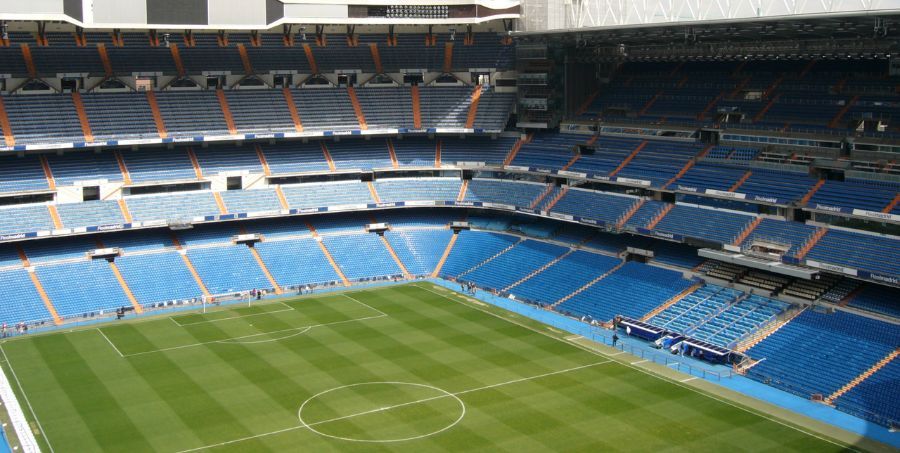
We’re not being biased! Real Madrid CF, founded in 1902, has not only dominated Spanish football but also achieved legendary status internationally. In 1920, King Alfonso XIII granted the club permission to use the title “Real” (meaning “Royal”), along with the royal crown emblem, marking its elevated status.Named “Best Club of the 20th Century” by FIFA, it has won more European Cups, now UEFA Champions League titles, than any other team. A tour of the Santiago Bernabéu Stadium offers great insight into the club's rich history and iconic achievements.
9. Madrid has the second-largest Metro system in Europe
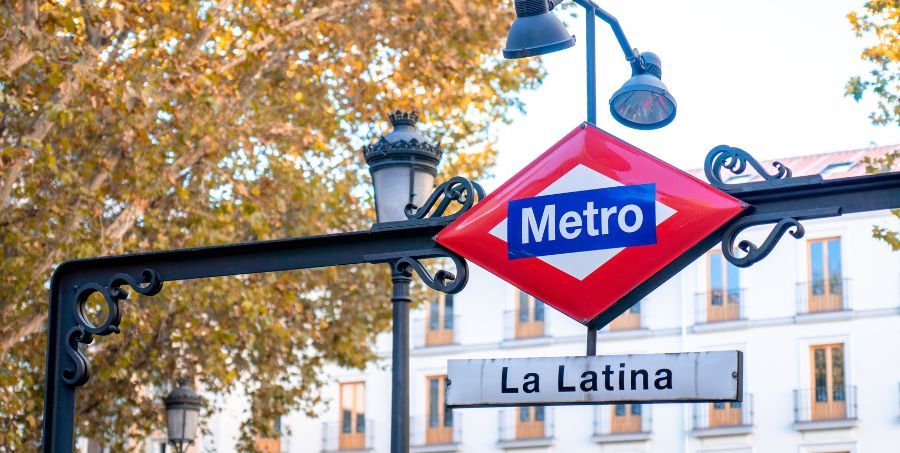
Madrid’s Metro is one of the most extensive in the world, second only to London in Europe. With over 300 stations and more than 290 kilometres of track, it is fast, clean and a great way to explore the city and surrounding areas. Several stations even feature art installations and archaeological exhibits, including ancient roads and aqueducts uncovered during construction.
10. There’s an Ancient Egyptian Temple in the middle of the city
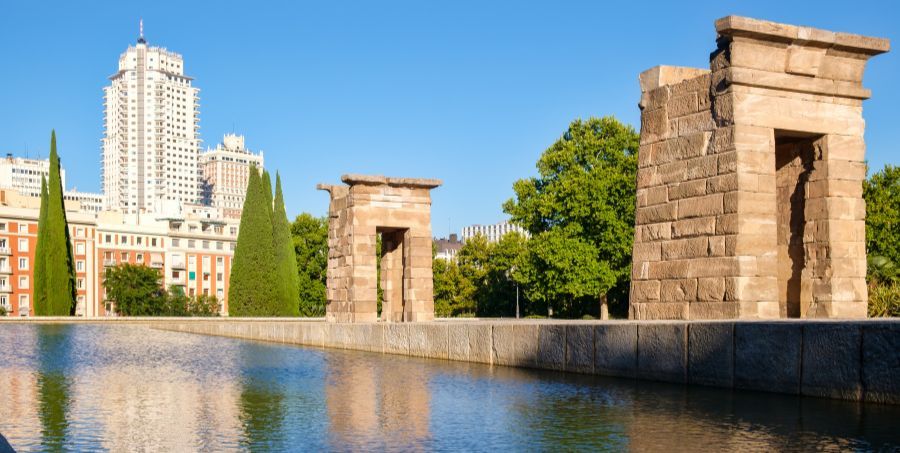
The Temple of Debod, located in Parque del Oeste, is a genuine, 2,200-year-old Egyptian temple. It was gifted to Spain in 1968 in thanks for its help in preserving monuments threatened by the construction of the Aswan Dam. The temple is particularly striking at sunset, offering unique views over the western edge of the city.
11. Madrid is one of Europe’s highest capitals
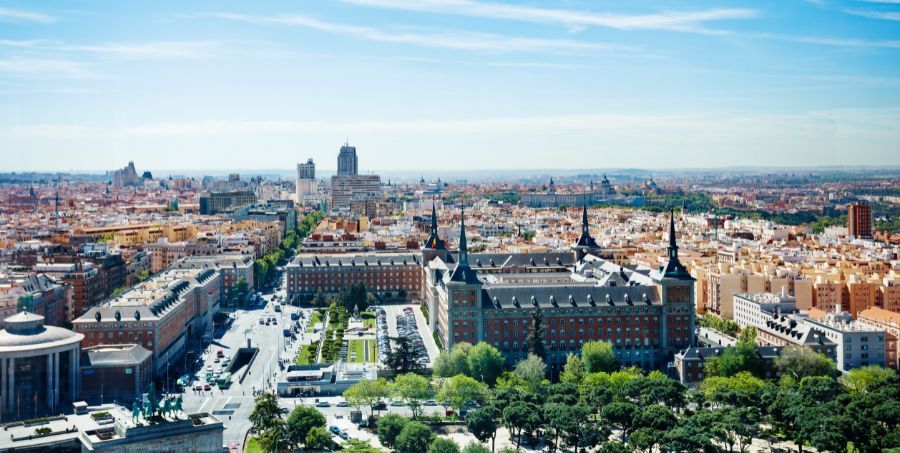
At approximately 667 metres above sea level, Madrid is one of the highest capital cities in Europe, higher than both Paris and Rome. This altitude gives the city its distinct seasonal character, from crisp winters to dry, intensely sunny summers. It also provides some impressive panoramic views, especially from its many rooftop terraces.
12. The Gran Vía was inspired by Broadway
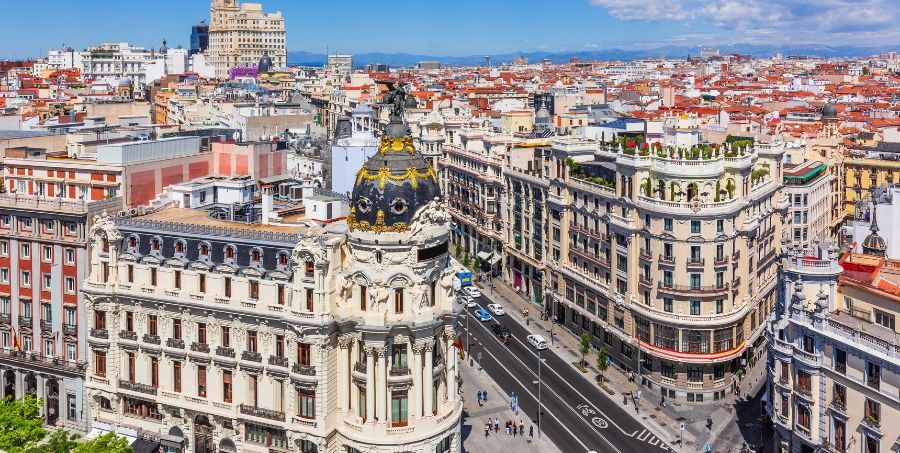
Madrid’s iconic boulevard, the Gran Vía, was once called the “Spanish Broadway” thanks to its concentration of theatres and cinemas. Today, it remains a showcase of early 20th-century architecture, buzzing with shops, hotels and nightlife. Whether you’re after retail therapy or a cultural evening out, this historic avenue offers a vibrant cross-section of Madrid life.
Planning a Madrid city break?
Whether you're interested in royal history, art, sport, or food, Madrid has something for everyone. Browse our holidays to Spain or enjoy an unforgettable city break in Madrid and discover everything this vibrant capital has to offer.

